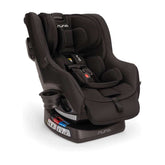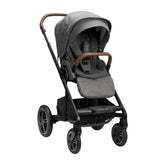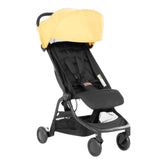How to Handle Fussiness in Preemies: What You Need to Know

Caring for a premature baby can be an overwhelming experience for parents. These tiny infants, born before 37 weeks of gestation, often require special care due to their underdeveloped organs and systems. One common challenge parents face is dealing with fussiness in their premature babies. Understanding the reasons behind this behavior and learning effective coping strategies can help parents manage this difficult phase more comfortably.
What is Fussiness in Babies?
Fussiness in babies generally refers to periods when infants are unusually irritable, crying, or difficult to soothe. This can be a normal part of development, but it can also be a sign of underlying issues, especially in premature babies whose systems are still developing. Recognizing and addressing the causes of fussiness can significantly enhance the well-being of both the baby and the parents.
Why Is My Premature Baby So Fussy?
Premature babies can be fussier than full-term infants for several reasons:
- Immature Nervous System: Preemies have underdeveloped nervous systems, making them more sensitive to stimuli such as light, noise, and touch.
- Medical Issues: Conditions common in premature babies, such as gastroesophageal reflux (GER), colic, and respiratory problems, can cause discomfort and irritability.
- Feeding Challenges: Premature babies often have difficulty with feeding, which can lead to hunger, gas, and colic, contributing to fussiness.
Premature Baby Cry Sound: What to Expect
The cry of a premature baby can differ from that of a full-term baby. It may be weaker, higher-pitched, and more easily triggered by minor discomforts. This is due to their underdeveloped vocal cords and nervous system. Over time, as they grow and their systems mature, their cry will become stronger and more typical of their age.

Is It Normal for a Premature Baby Not to Cry?
It's not uncommon for very premature babies to have a weak cry or not cry at all initially. Their respiratory and nervous systems may not be fully developed, affecting their ability to cry loudly. However, as they grow and their systems mature, their crying patterns should normalize. Always consult with your healthcare provider if you have concerns about your baby's crying or lack thereof.
When Do Premature Babies Start Crying?
Most premature babies start to cry more noticeably as they reach their original due date. Crying is an important developmental milestone, indicating that their respiratory and nervous systems are maturing. If a premature baby does not begin to cry more robustly by their due date, it is important to discuss this with a pediatrician.
Signs of Stress in Premature Infants
Recognizing signs of stress in premature infants can help parents address their needs more effectively. According to Stanford Children’s Hospital, these signs may include the following:
- Changes in Breathing: Rapid, shallow breathing or pauses in breathing can indicate stress.
- Color Changes: Pale or mottled skin, or a bluish tint around the mouth, can signal distress.
- Unusual Movements: Tremors, jerky movements, or a stiff body can be signs of overstimulation or discomfort.
- Crying Patterns: A high-pitched, inconsolable cry may indicate pain or distress.

How to Cope with a Fussy Baby
Coping with a fussy baby requires patience and a variety of soothing techniques. The Mayo Clinic advises the following tips to soothe a fussy little one:
-
Create a Calm Environment: Minimize noise, bright lights, and sudden movements. A quiet, dark room can help soothe an overstimulated baby. ANB Baby carries a wide variety of white noise machines and other nursery essentials to soothe a fussy baby.
-
Swaddling: Wrapping your baby snugly in a blanket can provide a sense of security and reduce crying. Find a range of soft, snuggly swaddles at ANB Baby.
-
Gentle Rocking and Movement: Rocking, swaying, or using a baby swing can help calm a fussy baby. ANB Baby has a selection of high-quality gliders to rock your little one to sleep.
-
Pacifiers: Sucking can be very soothing for babies, and a pacifier can help satisfy this need. Take a look at the wide range of premium pacifiers at ANB Baby.
-
Regular Feeding: Ensure your baby is fed at regular intervals to prevent hunger-related fussiness. ANB Baby features a variety of anti-colic bottles and breastfeeding supplies.
Treating Colic in Premature Babies
Colic, characterized by prolonged periods of crying, can be particularly challenging in premature babies. The Cleveland Clinic recommends the following treatment strategies include:
- Adjusting Feeding Techniques: Smaller, more frequent feedings can help reduce gas and discomfort. Ensure proper burping after each feeding.
- Diet Changes: For breastfeeding mothers, eliminating certain foods from their diet may help. For formula-fed babies, a doctor might recommend a hypoallergenic formula.
- Probiotics: Some studies suggest that probiotics can help reduce colic symptoms by promoting healthy gut flora.
- Comfort Measures: Swaddling, using white noise, and gentle rocking can help soothe a colicky baby.

Do Premature Babies Need to Be Held More?
Premature babies often benefit from being held more frequently. Skin-to-skin contact, or kangaroo care, is particularly beneficial. This practice helps regulate the baby’s body temperature, heart rate, and breathing. It also promotes bonding and can help reduce stress and fussiness for both the baby and the parents. Holding your baby frequently can provide comfort and security, essential for their development.
Embracing the Journey with Your Premature Baby
Fussiness in premature babies is a common yet challenging aspect of their early development. Understanding the reasons behind this behavior, recognizing signs of stress, and employing effective coping strategies can make a significant difference. Creating a calm environment, maintaining a consistent routine, and seeking medical advice when necessary are crucial steps. Remember, the journey with a premature baby, though demanding, is filled with opportunities for bonding and growth. With patience, support, and informed care, parents can navigate this period successfully, fostering a nurturing environment for their premature infant to thrive.
 |
Join Our Mailing List Sign Up for exclusive updates,
new arrivals & insider-only discounts |









